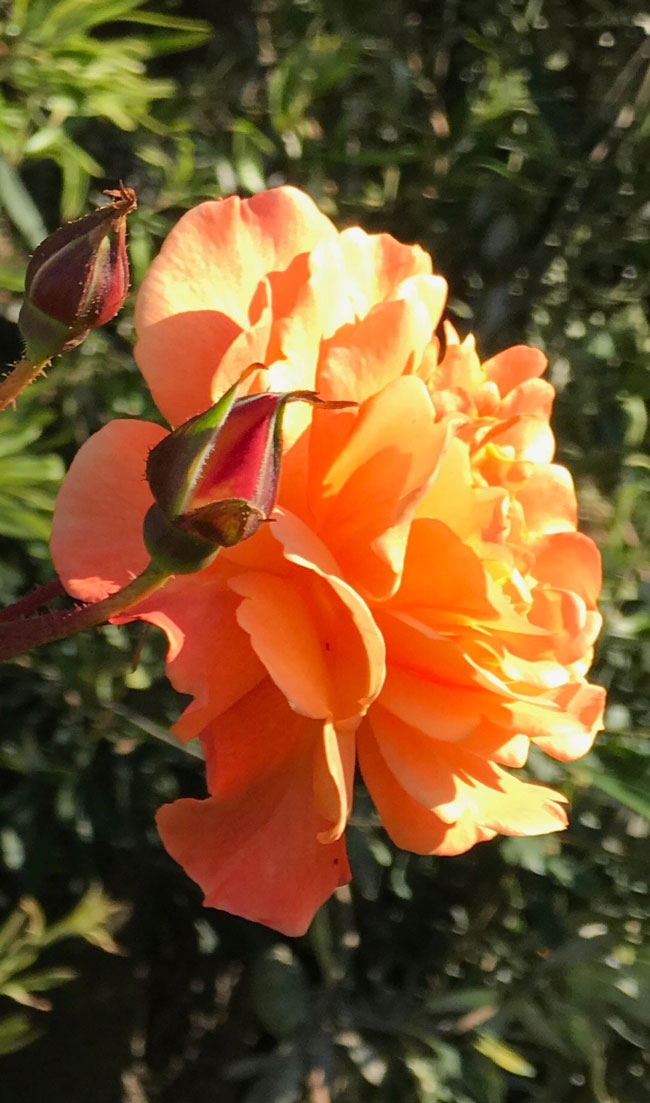Kia ora Koutou, here it is, the beginning of August and I’m remembering my brother whose birthday was on the second. Russell, always called Jimmy by his mother and sisters, friends who knew him then, was short for his first twelve or so years, then shot up to about six foot overnight, it seemed. Tall, skinny, dark skin, dark–haired, he had a one-wheeler bike which he rode everywhere. School, shopping for Rose, football (rugby) practice, or anywhere else he wanted to go. He had great physical balance.
He played the pipes in the Caledonian Pipe Band and Rose made him practice in the woodshed. I can’t say I blame her. He looked very handsome in the green kilt and my sister and I suddenly had lots of girls wanting to make our acquaintance.
He told jokes to my sister and me, jokes we thought very funny. The three of us might be ostensibly looking for those little black seed–like things called ergot, ‘for patriotic purposes’, whatever that meant, but in reality we were listening to jokes and tall tales that kept us entertained while we did the boring job. Ergot is very small and it took a couple or more handfuls to half fill a small jar. All school kids who had access to fescue grasses (our name for them) were doing the same.
It was a godsend for parents of course especially when it was the long summer school holidays. If a kid thoughtlessly mumbled she had nothing to do, she’d be told very smartly, ‘Go and look for ergot then.’
The cat, called George as always, not the one I’ve written about before but an earlier version, was very irritated by our trampling over his hunting and playing grounds. He slithered through the grasses like a skein of black wool on legs, giving us dirty looks and keeping an eye out for any unwary mouse or bird or insect, startled into movement by our noise.
Jimmy got a motor bike which he enjoyed until he banged into the concrete fence around the Taradale Town clock one late night whereupon he sold the bike (it being the bike’s fault, you understand) and bought an old car. He never switched back and I think he enjoyed driving cars better. Years and years later he restored an old car to resplendent new life and on request, used it to transport brides or other special people to various destinations.
He and other Rotarians went to Pacific Island and helped the people rebuild houses and schools and in another Rotary–instigated job, he helped the kids of solo mothers buy shoes. Rose had had him apprenticed to a shoe repairer when he was fifteeen so he knew about shoes. Shoe repairer shops faded away as we all stopped having shoes repaired and simply chucked the old ones and bought new.
He worked mainly in the cheese and butter industry, in the factories at first and then gradually rising through the ranks, married Lillian, who’d sung in a group with Val, and me playing guitar, had a son and daughter, and lived a life, kept a big garden, grew more and more conservative, more set in his ways, maybe a bit rigid at times? However he always welcomed his older sister to his house, whatever he thought of her political stances and her lifestyle. He couldn’t sing in tune but he learned a song in te reo Maori so he could be in the group behind me when I received the Kingi Ihaka Award for services to Toi Maori.
‘I thought the way we lived was normal,’ he said to me a year or so before he died. He was referring to our childhood poverty, the bare necessities, the phrase that governed our lives, ‘If there’s enough left by next Pension Day’ and knowing there never would be. Unsurprisingly he grew up to be a saver while I grew up to be the opposite. There’s definitely a research paper there on the different ways poverty affects attitudes to money in later life.
This August 2, I have an image of him on that one-wheeler, setting off into the late afternoon sunshine, whistling tunelessly, rugby boots tied together by their laces and slung over his shoulders, not a care in the world, as he rides into the future…
Renée

